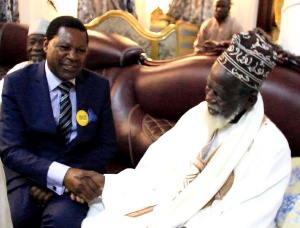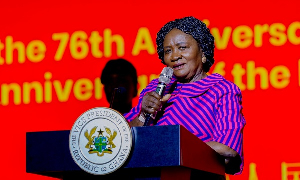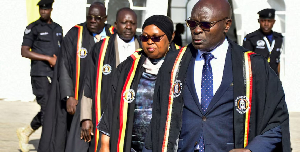National Chief Imam Sheikh Usman Nuhu Sharubutu has lauded the proposal to seek additional funding for the National Health Insurance Scheme (NHIS) as, he says: “Many Ghanaians largely depend on the NHIS for their health care, and, therefore, its sustenance is key in promoting national development”.
The Imam made these pronouncements when management of the National Health Insurance Authority (NHIA), led by its CEO Dr Samuel Annor, paid a courtesy call on him at his residence in Fadama, Accra.
The visit was among others, to seek the support and input of the Chief Imam on the request by various stakeholders for government to reconsider the financial model of the scheme.
The Chief Imam praised the current management of the Authority and called on them to ensure that subscribers are given the best health care when they visit their facilities.
For his part, Dr Annor assured the Chief Imam and his elders of measures the Board and management are putting in place to arrest the seepage of scarce NHIS funds.
He said: “The Board has directed that our management engage the right procedures to roll out the electronic claims system which seeks to reduce the time for claims processing and fraud in the scheme.”
Dr Annor said they are currently “piloting an innovation where our members will no longer have to travel and wait for hours to renew their membership but instead, use mobile phones through a short code from the comfort of their homes.”
Since the beginning of this year, management of the NHIA has deliberated with various stakeholders, including civil society organisations, media practitioners, Trades Union Congress (TUC), organised labour, representatives of associations in the health sector, chiefs and the general public on its reforms.
The proposals made to government included among others, increase in the NHIL component of the VAT from 2.5% to 3.5%, levy on sugar, alcohol, tobacco to fund the scheme; and an allocation of some of the oil revenue into the Health Fund to enable it become financially stable for its efficient operations.
General News of Friday, 13 July 2018
Source: classfmonline.com













